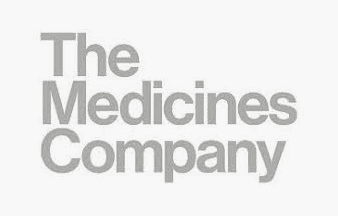
The Medicines Company has positive top-line data from the last of its phase 3 trials of inclisiran, setting up regulatory filings and a market clash with other PCSK9 inhibitor drugs.
The ORION-9 and ORION-10 data will be reported in full at the American Heart Association (AHA) meeting in November. According to TMC, it showed that the twice-yearly drug was effective at reducing LDL-cholesterol in patients already taking maximum doses of statin drugs, without adding to the side-effect burden.
ORION-10 involved patients with atherosclerotic cardiovascular disease (ASCVD), and the results back up the earlier ORION-11 data in the same patient population which was presented at the European Society of Cardiology (ESC) congress earlier this month.
Meanwhile, the ORION-9 trial investigated inclisiran in patients with heterozygous familial hypercholesterolaemia (HeFH), a genetic predisposition to elevated cholesterol levels in the blood that is associated with early-onset cardiovascular disease.
With its three main phase 3 trials now completed TMC will be able to move ahead with a regulatory filing in the US before the end of the year, and in Europe in early 2020.
If approved, inclisiran will compete most closely with two antibody-based PCSK9 inhibitors – Amgen’s Repatha (evolocumab) and Sanofi/Regeneron’s Praluent (alirocumab) – but will offer efficacy that is at least equivalent to its rivals but with less frequent dosing.
Alnylam-partnered inclisiran is a small, interfering RNA (siRNA) drug which works by blocking the synthesis of PCSK9 in the liver rather than targeting the protein itself. Its mechanism means it can be given as a subcutaneous injection initially, again at three months and then every six months thereafter.
That is a much less frequent dosing regimen than the antibody-based drugs, which are given every one to two months, while statins are taken orally every day.
Repatha and Praluent have struggled to make headway in the market mainly due to payer resistance, forcing their developers to slash prices from $14,000 per year at launch to around $6,000. Analysts think that twice-yearly inclisiran may be priced at a discount to the antibody drugs on launch, and could quickly grow to blockbuster sales levels.
Repatha brought in $152m in the second quarter of 2019, just $4m more than the same period of 2018, while Sanofi made €61m ($68m) from Praluent, a 3% increase, and Regeneron posted flat sales of $74m.
Amgen and Sanofi/Regeneron are expecting the drugs to gather momentum now that they have cardiovascular outcomes data to go along with surrogate results based on LDL cholesterol, and for a while that will give them an advantage over inclisiran.
TMC’s outcomes study – ORION-4 – started last year and has a primary completion date of 2024.




